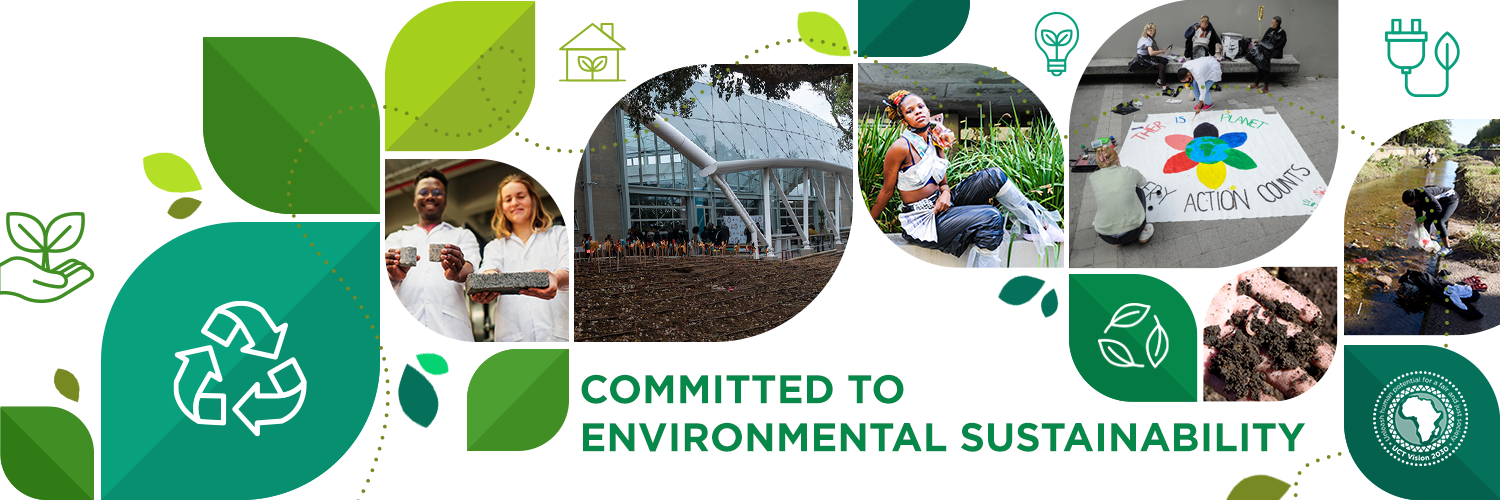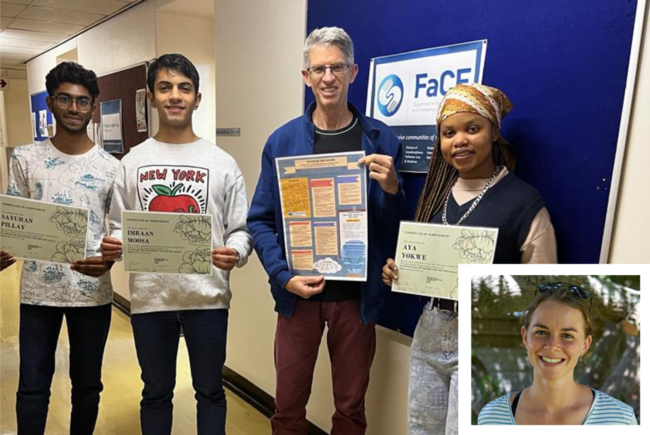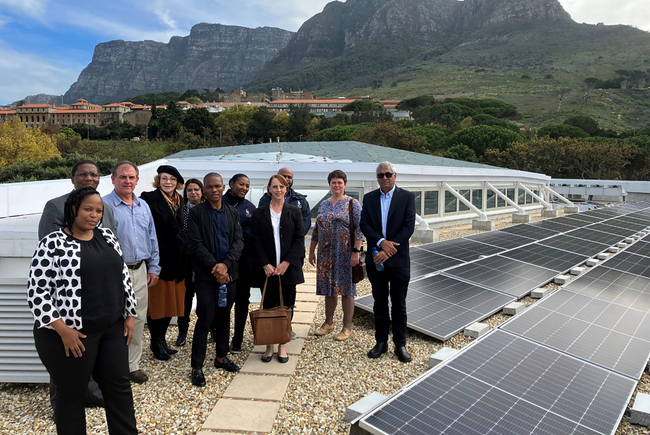Darkroom garden teaches students about sustainable photography practices
26 October 2023 | Videography Carbon Visuals and Supplied. Video Edit Ruairi Abrahams. Photo Lerato Maduna. VP Team Roxanne Harris, Ruairi Abrahams, Boikhutso Ntsoko and Rozanne Engel.The sustainable darkroom project is an initiative that was started in August 2021 at the University of Cape Town’s (UCT) Michaelis School of Fine Art. Under the guidance of UCT lecturers Svea Josephy and Vanessa Cowling, the project aims to teach students ways to make darkroom practices in photography more sustainable.
Students involved in the project helped to plant a garden in the Rosedale parking lot at Michaelis. The plants from the garden are used to make anthotypes, sustainable photographic prints made from plant pigments. Students also use the plants to experiment with making sustainable darkroom chemicals and to do research into sustainable darkroom practices.
 This work is licensed under a Creative Commons Attribution-NoDerivatives 4.0 International License.
This work is licensed under a Creative Commons Attribution-NoDerivatives 4.0 International License.
Please view the republishing articles page for more information.

Committed to Environmental Sustainability
The University of Cape Town’s (UCT) Vision 2030 strategy’s goal is to unleash human potential in pursuing a just and equitable society. This vision rests on three fundamental pillars: sustainability, excellence, and transformation. In line with this strategy, the university has developed different initiatives, including a sustainability strategy, to provide direction for UCT’s environmental sustainability. This strengthens the university’s ambitions of being a net-zero carbon/energy, water, and waste-to-landfill campus by or before 2050.
UCT Sustainability and the SDGs 2022
UCT is committed to addressing the most critical problems facing the continent and the rest of the world. This report tracks the progress UCT is making towards the United Nation’s Sustainable Development Goals and the African Union Agenda 2063.
Download the PDF version | Read the full report:

The University of Cape Town’s (UCT) Faculty of Health Sciences (FHS) took part in their first scorecard for the Planetary Health Report Card (PHRC), a global student-led initiative to promote education about planetary health and environmentally sustainable healthcare in health science campuses
31 May 2023 - 4 min read
“We learnt some valuable lessons during [COVID-19] lockdown that we will take into the future, many of them contributing to more efficient and environmentally sustainable digital methods for doing certain things.”
– Manfred Braune, the director for environmental sustainability at UCT
























